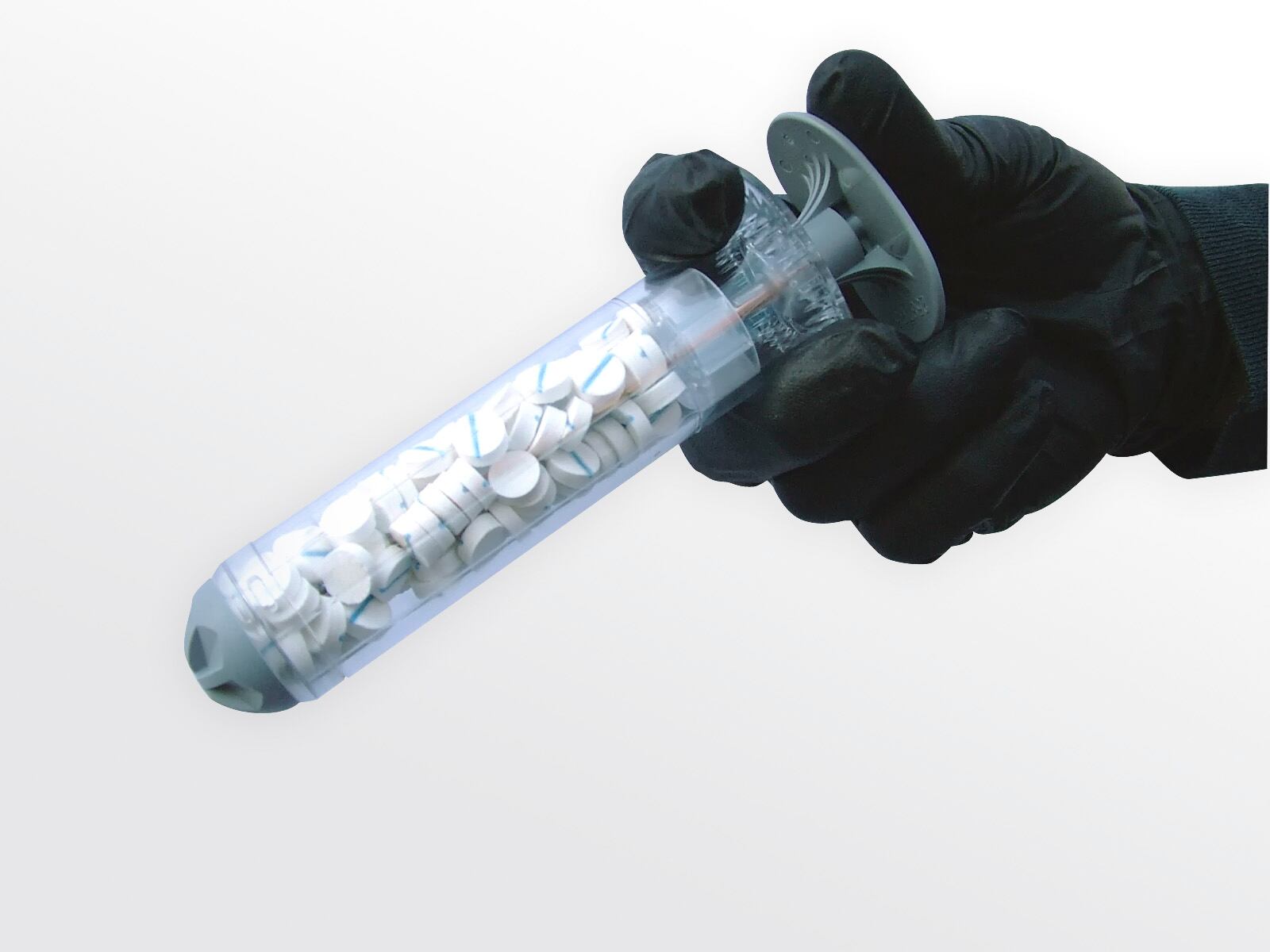Special operators are receiving a supply of injectable sponges designed to stop blood hemorrhaging on the battlefield. The move could eventually lead to more widespread use across the services.
XStat consists of a pocket-sized syringe full of 92 tiny disc-shaped sponges made of special sterile cellulose and coated with chitosan, a clotting agent. They can expand to about 10 times their size, providing hemostatic pressure and blocking blood flow until the wounded patient can get surgical care.
tiny disc-shaped sponges made of special sterile cellulose and coated with chitosan, a clotting agent. They can expand to about 10 times their size, providing hemostatic pressure and blocking blood flow until the wounded patient can get surgical care.
An Army study in 2012 indicated hemorrhaging accounted for 90 percent of deaths in potentially survivable battlefield cases.
"The ability to pack a wound within seconds, to get to a point of a bleed, can allow a medic to focus on the patient. It frees up the medic's hands instead of trying to maintain pressure on a wound," Luciano said. "It's not a game-changer per se, but it provides a capability that we've never had."

XStat by RevMedx, uses small medical sponges coated with a blood-clotting agent, loaded into a giant syringe-like injector to help stop bleeding from wounds on the battlefield.
Photo Credit: Courtesy of RevMedx
Markers visible by x-ray on each sponge ensure they can easily be found and removed after a patient is stabilized for surgery.
RevMedx, aside from the release, deferred to the military when reached for comment about details of the initial deliveries.
Luciano declined to say how many XStat devices that SOCOM purchased.
"It's extremely limited because of the cost," he said. "I've been instructed not to provide any further detail as far as quantity. It's a limited purchase and limited distribution within SOCOM."
SOCOM acquisitions spokesman Navy Capt. Kevin Aandahl also said he couldn't say how many Xstats were purchased or who would receive them. He did say distribution would include special operations troops from the Army, Air Force, Marine Corps and Navy, and that selected units for fielding "would be the units most likely to need it: deploying units."
He declined to specify the per-unit cost of XStat, in part because the price should be dropping significantly when full-rate production capability launches. He indicated XStat currently isn't cheap, but said much of the cost is built into the current "hand-made manufacturing" process.
Scaled-up production will increase stock and reduce costs, Luciano said, and XStat "will be a medical device everyone should have."





